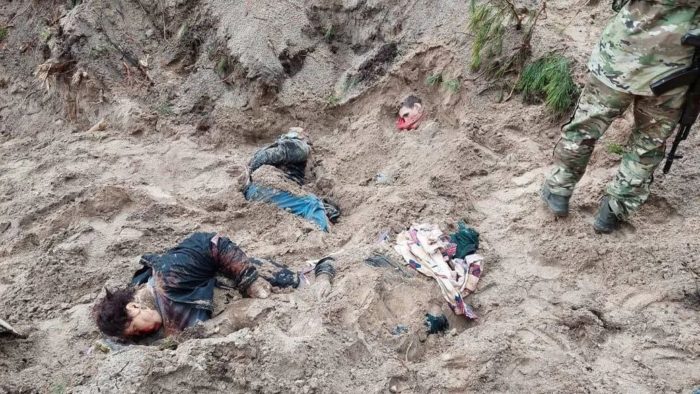Putin’s war in Ukraine is different from past conflicts in many ways, ranging from the kind of weapons used to the insistence of some that the pursuit of the end of the fighting is more important than defeating the invader. But perhaps the most important is that new technologies permit the documentation of Russian war crimes in real time.
Using cellphone cameras and other devices not available in earlier conflicts, Ukrainians have been able to record and report war crimes and crimes against humanity that Russian forces have committed as they happen and provide evidence of them far earlier and often far more convincing than was ever possible in earlier wars.
Related: Russian war crimes. Mutilated bodies of Ukrainian soldiers found in trench in Kyiv Oblast
Not only does this mean that national and international tribunals will have far more to do now and in the future to bring the guilty to justice, but it also means that the war itself has changed in character for both those who are victims and for those who are involved in such criminal activities.
For the Ukrainian victims, it means that the documentation of these crimes serves as an additional mobilization factor, making it far less acceptable to think that the war against their nation should end in anything less than the defeat of the aggressor and his punishment for such horrific acts.
Related: Russian soldier sentenced for life in Ukraine’s first Russian war crimes case
And for the Russian army, it means that war crimes have become normalized, with so many of its officers and men implicated that there is a sense that they must achieve victory or they will face punishment and not just the opprobrium they are already subject to. After all, as Russians have often said, “victors are not judged.”
As of the middle of May, Ukrainian law enforcement bodies have been presented with evidence, often photographic, of 11,600 war crimes and crimes against humanity committed by the Russian invaders.
Related: War crimes: identifying and recording mass graves in Ukraine
These crimes include such actions as extra-judicial execution, kidnapping, torture, rape, the destruction of civilian housing, and the use of prohibited kinds of weaponry. The list is obviously incomplete, covering only part of Ukraine, and will undoubtedly grow with time, creating a burden on Ukrainian and international legal bodies of enormous size.
So far, only a handful of cases have been brought to court, and only one has been completed with a life sentence handed down. But far more are certain to be launched in the coming days and weeks, and the number of convictions will beyond any question rise to one greater than in any past war.
Read More:
- Russia’s war with Ukraine affects billions. NATO could end it in a moment.
- Moscow using real neo-Nazis to fight its war in Ukraine, German intelligence concludes
- Meet the Ukrainian university professor who gives lectures from the trenches
- “Russia killed my grandfather, deported my mother, arrested my sons.” Crimean Tatar historian on “intentional extermination” of his people
- Putin isn’t ‘copying the Nazis’ as some in the West say; he is a Nazi, Skobov says
- Four reasons the EU should grant Ukraine candidate status this June
- 10 tricks Russia uses to evade sanctions
- “Tens of thousands” of Russians wounded in Ukraine overwhelming Putin-optimized hospitals

